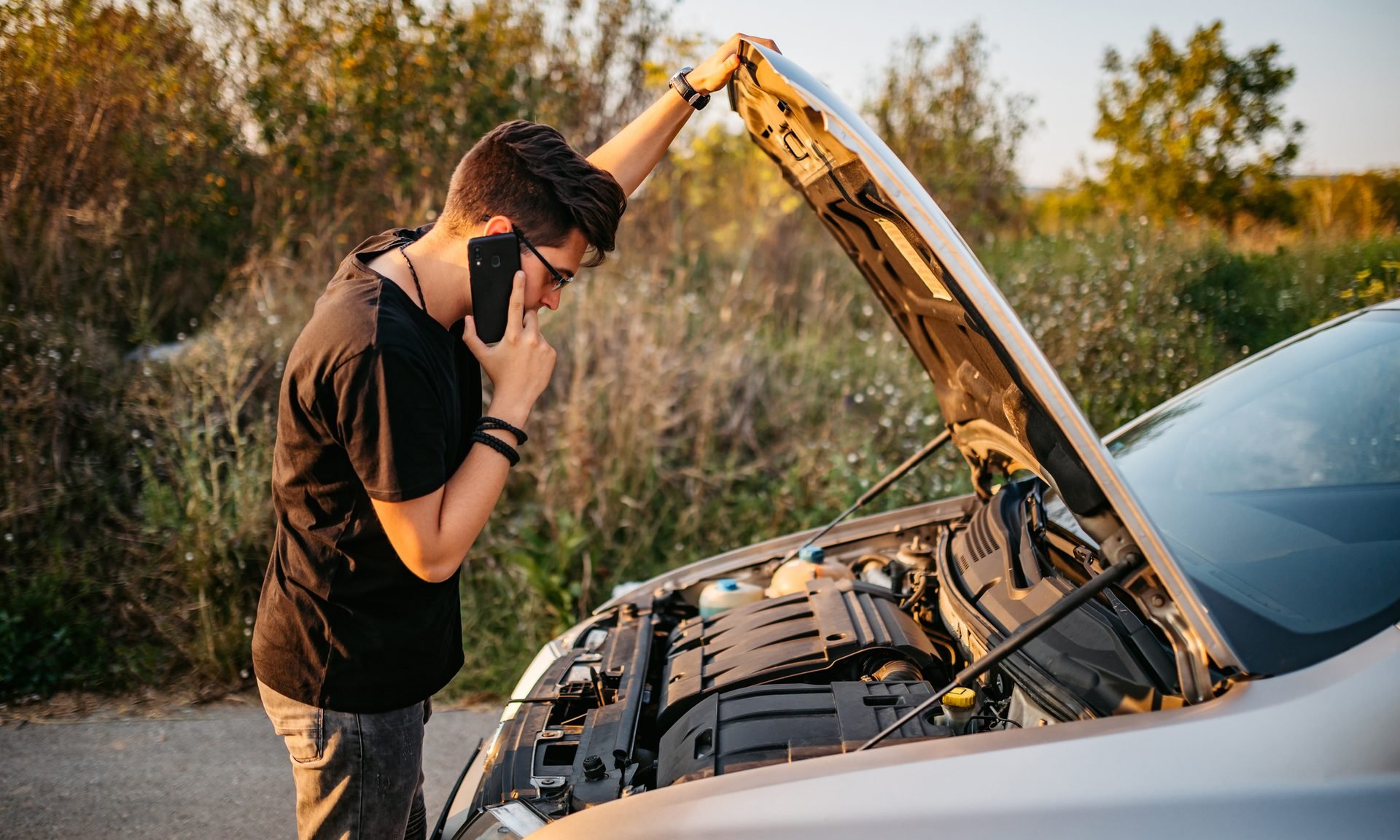Should I Buy an Extended Warranty on a Used Car?
An extended warranty on a used car might be worth it depending on vehicle condition and your ability to pay for repairs.

Many, or all, of the products featured on this page are from our advertising partners who compensate us when you take certain actions on our website or click to take an action on their website. However, this does not influence our evaluations. Our opinions are our own. Here is a list of our partners and here's how we make money.
A used auto warranty can provide financial protection against paying unexpected car repair costs, but it can also be a considerable investment with little or no direct benefit. Before purchasing an extended warranty for a used car, understand exactly what you’re agreeing to pay for.
If you don't drive a lot and the car is only a few years old, in good shape, a reliable brand or a certified pre-owned car, you may not need a used auto warranty. On the other hand, if you're on the road a lot, the car is old or not in top shape, and you think you might have trouble affording sudden repairs, it may be something to consider.
What is a used auto warranty?
In general, car warranties pay for certain repairs resulting from mechanical or electrical failures on a vehicle. In general, there are three types of warranty coverage.
- Factory warranty (leftover coverage). If the car you buy is only a few years old, it may still have some of its original manufacturer’s warranty remaining. If so, this coverage may transfer to you with the car.
- Dealer warranty. Some used car dealerships include short-term warranties at no additional cost. These warranties usually only cover basic repairs for 30 to 90 days after the vehicle’s purchase.
- Extended warranty. Also called an auto service contract, this is the type of coverage we address in this article. It’s an optional contract you purchase separately, and it’s designed to kick in after any factory coverage expires. Extended warranties are available for used and new cars.
You can buy extended warranties from various sources, such as vehicle manufacturers, car dealers or independent companies.
The contract prices and coverage vary widely and depend on factors such as the car’s make, model, age and mileage. Other factors include the contract length, coverage level and provider you choose. In general though, the cost of a used auto warranty can range from several hundred dollars to thousands of dollars annually. You may also have to pay a deductible or any uncovered expenses when the car is repaired .
» MORE: What is a car warranty?
Advertisement
What do used car warranties cover?
Coverage varies by provider and the type of plan you choose. Many service contract providers have tiered offerings with increasing coverage and cost at each level.
- A basic powertrain plan commonly covers major vehicle components — such as the engine, transmission and drivetrain.
- At the highest levels are bumper-to-bumper plans that cover nearly all car parts. These are called exclusionary, because they have only a short list of excluded items.
- Other coverages that may be included at various levels are heating and air conditioning, steering, braking, suspension, electrical and fuel systems.
- Some warranties offer add-ons, such as roadside assistance or rental car reimbursement.
- Routine maintenance, such as oil changes and tired rotations, is usually excluded. So are problems resulting from normal wear and tear, although some comprehensive warranties cover parts that wear down at an added cost.
Before buying, it’s crucial to read the fine print of the warranty. Know specifically what it includes and excludes.
How do used car extended warranties work?
The used car warranty provider agrees to pay for certain repairs or services as outlined in the contract. When a covered component or system fails, a car’s owner takes it to an approved repair shop or dealership.
The repair shop or dealership identifies the problem and contacts the warranty provider for authorization of the claim. After the claim is approved and repairs are completed, the warranty provider usually pays the repair shop directly, but in some cases you could be required to pay the bill upfront and be reimbursed later.
Reasons to buy (or not buy) a used car warranty
Certain questions can help you decide whether buying an extended warranty for your used car might be a benefit or waste of money.
- How new is the car you’re buying? If it’s only a few years old, it may still have time left on the manufacturer’s original warranty. You won’t want to pay for extended warranty coverage on parts that are still covered under the factory warranty. If the car you’re buying is older, especially if it has high mileage, the more likely you are to need repairs and benefit from warranty coverage at some point.
- How much will you drive the car? Adding significant mileage to a car can increase the chance of something breaking. If you regularly drive long distances, an extended warranty might be worth considering, especially if the vehicle already has many miles.
- How long will you keep the car? If the used car you buy is well maintained, and you plan to drive it for a short time, a service contract might not be worth the expense or effort of later having to cancel it. On the other hand, if you plan to maintain ownership for several years, you may be more likely to use extended warranty coverage.
- How reliable is the car brand? Some makes and models are known for going the distance without frequent repairs. Various sources identify the most reliable car brands and models. Buying a used car model that doesn’t have strong reliability ratings could mean more repairs in your future.
- Is the car certified pre-owned (CPO) vehicle? CPO cars undergo rigorous inspections and must meet high quality standards. They usually come with a manufacturer-backed warranty that extends time and mileage limits of the factory warranty. Check to see what the CPO warranty covers and for how long, before buying any additional coverage.
- How well can you handle unexpected repair costs? If you don’t have money for unplanned car repairs, an extended warranty could prevent you from getting behind on other bills or missing work when your car breaks down. If you do have a bit of a financial cushion, consider whether increasing your savings to cover potential repairs makes more sense than buying a warranty you may not use.
🤓 Nerdy Tip
When evaluating whether to buy an extended warranty on a used car, research the car’s history and learn as much as you can about its condition. Ask to see maintenance records. Obtain a vehicle history report. Get a used car inspection. If the car has been cared for, an extended warranty may be an expense you don’t need. 4 tips for evaluating used car warranties
If you're thinking about buying an extended warranty, here are four shopping tips.
- Compare providers. Don’t let a dealership pressure you into buying on the spot. Not all warranty companies are the same, so take time to compare. Look up online reviews and ratings to find those with the best reputation.
- Ask for sample contracts. Read the terms carefully to determine what is included or excluded. Compare costs, deductibles, coverage duration, vehicle mileage/age limits and claim requirements. Make sure you aren’t paying for coverage you don’t need.
- Check waiting periods. Many used-car warranties don’t cover preexisting conditions. You may have a waiting period of 30 to 90 days or a certain number of miles before any repairs are covered.
- Negotiate if possible. Depending on the warranty provider, you may be able to negotiate for a better price or added benefits at no cost. Make sure to let providers know that you’re shopping around for coverage.
Purchasing an extended warranty for a used car can be expensive. But, paying out-of-pocket to repair failing car parts and systems can be too. Weighing the likelihood of needing repairs against warranty costs can help you make an informed decision.
Article sources
NerdWallet writers are subject matter authorities who use primary,
trustworthy sources to inform their work, including peer-reviewed
studies, government websites, academic research and interviews with
industry experts. All content is fact-checked for accuracy, timeliness
and relevance. You can learn more about NerdWallet's high
standards for journalism by reading our
editorial guidelines.
- 1. Federal Trade Commission Consumer Advice. Auto Warranties and Auto Service Contracts. Accessed Apr 4, 2025.
More like this
Related articles
AD
Avoid Surprise Repair Bills in the Year Ahead. Get $300 Off Any Plan Today!
REDEEM NOW
on Endurance's website

AD

Avoid Surprise Repair Bills in the Year Ahead. Get $300 Off Any Plan Today!
- Choose Your Own Certified Mechanic;
- 30-day Money-Back Guarantee;
- Free 1 Year of Elite Benefits*;
- 24/7 Roadside Assistance & Rental Car Coverage.
REDEEM NOW
on Endurance's website
AD
Avoid Surprise Repair Bills in the Year Ahead. Get $300 Off Any Plan Today!
REDEEM NOW
on Endurance's website

AD

Avoid Surprise Repair Bills in the Year Ahead. Get $300 Off Any Plan Today!
- Choose Your Own Certified Mechanic;
- 30-day Money-Back Guarantee;
- Free 1 Year of Elite Benefits*;
- 24/7 Roadside Assistance & Rental Car Coverage.
REDEEM NOW
on Endurance's website
AD
Sign up now and get up to $360/year* off your plan!
REDEEM NOW
on CarShield's website
AD
Sign up now and get up to $360/year* off your plan!
- Prices Start as Low as $99/Month;
- Claims Paid Directly to the Repair Facility;
- 24/7 Roadside Assistance, Rental Cars & Towing;
- No long-term commitment. Cancel anytime.

REDEEM NOW
on CarShield's website







